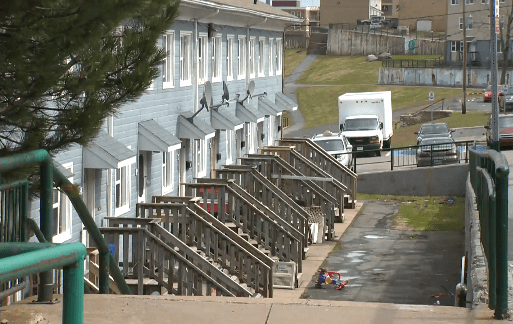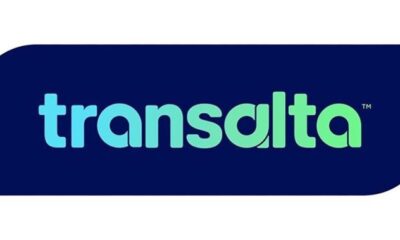Breaking News
Alberta construction group warns homeowners of fake, fear-mongering inspection letter

A warning has been issued by a residential construction company to residents in Alberta to be cautious of a potential scam.
BILD Alberta, a not-for-profit organization representing home builders, has reported that fake letters resembling the association have been sent to residents in the Edmonton and Calgary areas, requesting access to homes for inspections.
“This was more widespread than just one person receiving a letter,” said CEO Scott Fash in an interview with Global News.
“It was something a bit more widespread, which was even more concerning.”
The letters claim that a potentially hazardous insulation material called urea-formaldehyde foam insulation (UFFI) may have been used in the properties.
Understanding UFFI
UFFI was commonly used in the 1970s for insulating industrial, commercial, and older residential buildings, according to Health Canada.
UFFI is a low-density foam with a consistency similar to shaving cream that hardens and becomes self-supporting upon drying.
The insulation material has been banned in Canada since 1980 due to its release of formaldehyde gas during the curing process, which can lead to health risks, including cancer.
The fraudulent letters urge recipients to call a provided number immediately.
“Failure to comply with this mandatory inspection could result in legal action and impact your ability to sell or insure your home,” the letters state.
“This inspection is not only a legal requirement but also crucial for safeguarding your health.”

Alert Regarding Fear-Mongering Letter

Get daily National news
Get the day’s top news, political, economic, and current affairs headlines, delivered to your inbox once a day.
The fraudulent letters feature logos of the BILD Alberta Association and the Government of Alberta. Last month, BILD Alberta issued a consumer fraud notice on their website.
“It has come to our attention that fraudulent letters have been circulating, falsely claiming to be from the Government of Alberta and the BILD Alberta Association,” the statement read.
“Please be advised that neither BILD Alberta Association nor the Government of Alberta has issued any such notice.”
Fash clarified that sending letters to homeowners is not a practice they follow, nor do they conduct home inspections as an organization.
“That’s completely absurd, and again, that’s a really easy way if somebody doesn’t understand that and most people wouldn’t,” Fash expressed.
“Preying on somebody’s home is a really easy way of taking advantage of them. When somebody were to get a letter like that, they’re obviously going to be very concerned.”
The Alberta government has also issued a consumer alert warning, stating that the letter is not endorsed by them.

Realtors alerted about scam letter
Following this, realtors across the province have been informed about the situation.
Zachary Yuzyk, an associate at Clear Trust Mortgages, advises homeowners to be cautious if they receive notices pressuring them to act quickly or threatening legal action.
“This wouldn’t be the homeowner’s fault, right? It would be a material defect that you were unaware of when purchasing the property,” Yuzyk explained.
With a rise in scams across various communication platforms, Yuzyk emphasizes the importance of pausing and considering before taking action.
“While everyone is aware of phone and email scams, now physical mail is also being used. People tend to trust official documents more, but that doesn’t mean they are always legitimate,” Yuzyk pointed out.
“That’s just not the case. It doesn’t matter how it comes — you should always be skeptical.”
Recipients of the fraudulent notices are advised not to follow the instructions provided and to contact the Canadian Anti-Fraud Centre.
BILD Alberta recommends that homeowners who have already engaged with the sender should report the incident to their local police department.
© 2024 Global News, a division of Corus Entertainment Inc.
-

 Destination8 months ago
Destination8 months agoSingapore Airlines CEO set to join board of Air India, BA News, BA
-

 Breaking News10 months ago
Breaking News10 months agoCroatia to reintroduce compulsory military draft as regional tensions soar
-

 Gadgets3 months ago
Gadgets3 months agoSupernatural Season 16 Revival News, Cast, Plot and Release Date
-

 Tech News12 months ago
Tech News12 months agoBangladeshi police agents accused of selling citizens’ personal information on Telegram
-

 Productivity11 months ago
Productivity11 months agoHow Your Contact Center Can Become A Customer Engagement Center
-

 Gadgets3 weeks ago
Gadgets3 weeks agoFallout Season 2 Potential Release Date, Cast, Plot and News
-

 Breaking News10 months ago
Breaking News10 months agoBangladesh crisis: Refaat Ahmed sworn in as Bangladesh’s new chief justice
-

 Toys12 months ago
Toys12 months ago15 of the Best Trike & Tricycles Mums Recommend


























